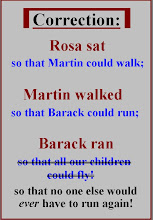 Whereas the simplest climate models reduce earth's energy budget to a single differential equation, the current infatuation of climate modelers is enormously complicated simulations with thousands of equations running on the world's fastest computers — see, for example, McGuffie, K. and A. Henderson-Sellers. 2005. A Climate Modeling Primer. J. Wiley, NY. Such productions are beyond the reach of conventional dynamical systems theory — which is to say that they replace a system we don't understand with models we can't understand — at least not mathematically.
Whereas the simplest climate models reduce earth's energy budget to a single differential equation, the current infatuation of climate modelers is enormously complicated simulations with thousands of equations running on the world's fastest computers — see, for example, McGuffie, K. and A. Henderson-Sellers. 2005. A Climate Modeling Primer. J. Wiley, NY. Such productions are beyond the reach of conventional dynamical systems theory — which is to say that they replace a system we don't understand with models we can't understand — at least not mathematically.Regarding the utility of proliferating detail in scientific hypotheses, the Argentinian writer J. L. Borges (left), had something important to say. And he said it in a single paragraph decades before science in simulo, as they like to call it, was even a momentary synaptic fluctuation in some computer programmer's misguided mind. Given the failure of contemporary models to iterate to the data, to say nothing of the mischief consequent to unthinking acceptance of their predictions, Borges' essay merits consideration. Here is what he wrote:
Point, Set, Match.On Exactitude in Science.
(Hurley, H. 1998. Jorge Luis Borges, Collected Fictions. Penguin Books. NY)
".... In that Empire, the Art of Cartography attained such Perfection that the map of a single Province occupied the entirety of a City, and the map of the Empire, the entirety of a Province. In time, those Unconscionable Maps no longer satisfied, and the Cartographers Guilds struck a Map of the Empire whose size was that of the Empire, and which coincided point for point with it. The following Generations, who were not so fond of the Study of Cartography as their Forebears had been, saw that that vast Map was Useless, and not without some Pitilessness was it, that they delivered it up to the Inclemencies of Sun and Winters. In the Deserts of the West, still today, there are Tattered Ruins of that Map, inhabited by Animals and Beggars; in all the Land there is no other Relic of the Disciplines of Geography.
Suárez Miranda, Viajes de Varones Prudentes, Libro IV, Cap. XLV, Lérida, 1658." [attribution fictitious]













No comments:
Post a Comment